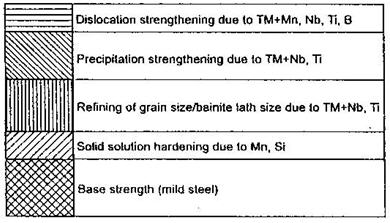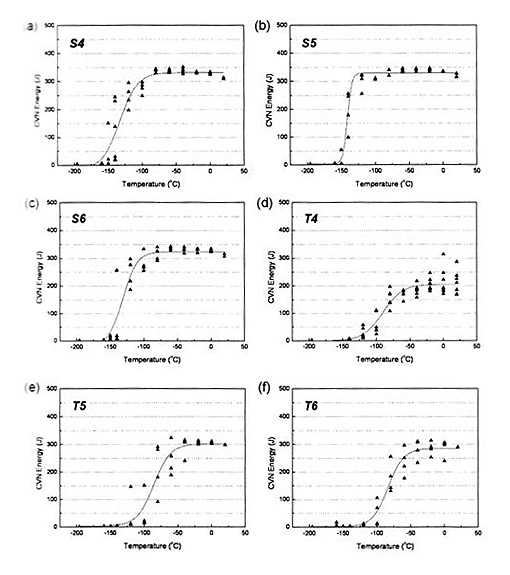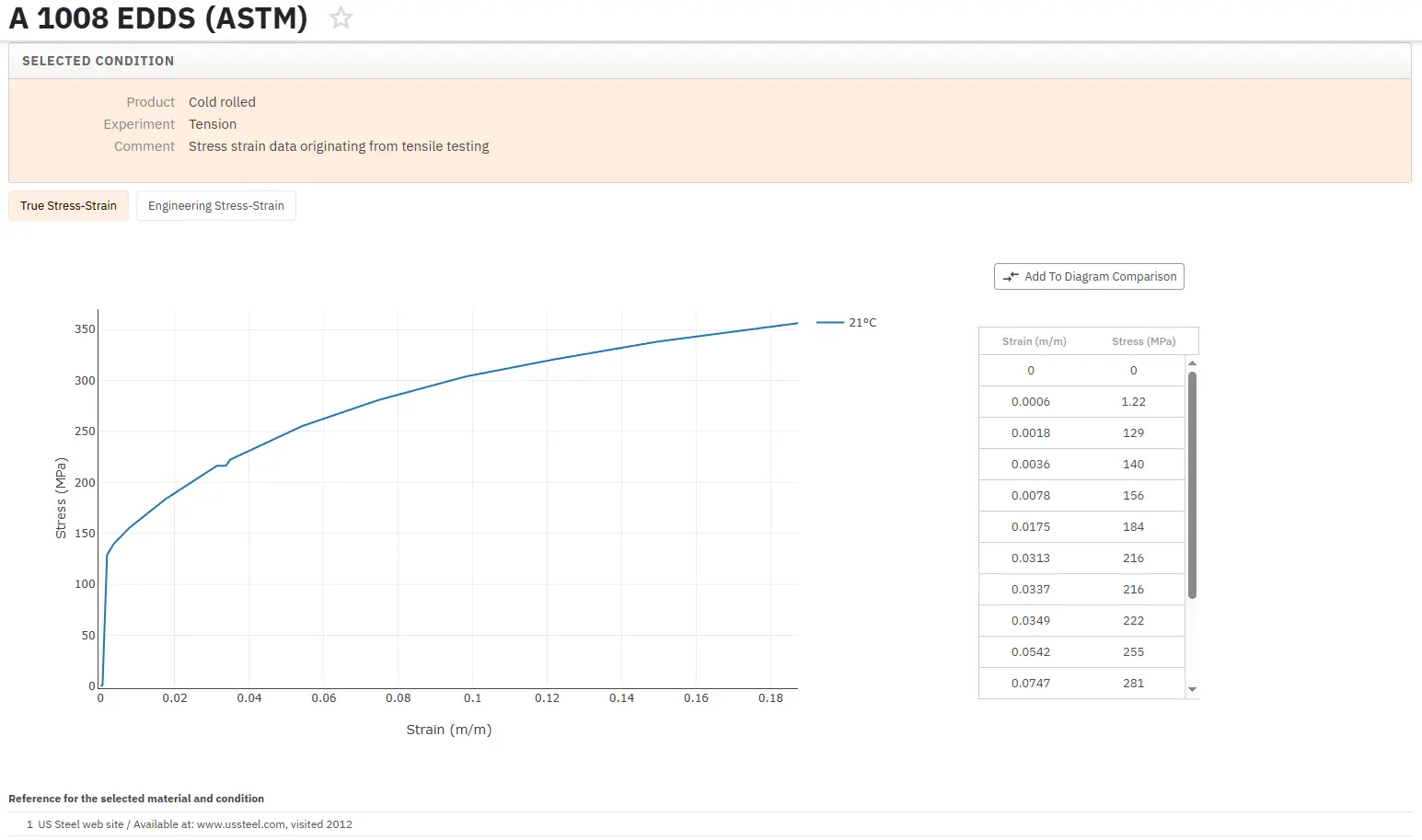Advanced Structural Steels: Part Three
Abstract
The Total Thermomechanical Control Processing enables materials up to X70 to be produced from steels that are microalloyed with niobium and vanadium and have reduced carbon content. Benefits include the decrease of transition temperature, improved weldability and lowered susceptibility for weld cracking.
A typical high strength microalloyed structural steel is X70. Its average composition is 0.07%C, 1.5%Mn, Nb+V+Ti 0.095-0.105%, and 50ppm N. Modern X70 has lower C content and addition of Cu+Ni+Mo up to 0.7%. Figure 1 shows the contributions of different strengthening mechanisms to yield strength of X70 steel.

Figure 1: The contributions of different strengthening mechanisms to the yield strength of X70 steel
Also, transition temperature diagrams for several X70 steels are shown on Figure 2. It is important to notice two features: (i) low transition temperatures estimated using Charpy pendulum and (ii) the upper shelf energies at -20°C at least 150J!

Figure 2: Transition temperature diagrams for several X70 steels
The thermomechanical processing enables materials up to X70 to be produced from steels that are microalloyed with niobium and vanadium and have reduced carbon content. In order to improve present high strength structural steels, Tanaka had introduced Total Thermomechanical Control Processing (TTMCP), which includes several measures with aim to provide wider production window and improve properties:
- Cleanness of Steel. The state of the art of steel making technology can produce very clean steel in terms of N+O+S+P < 50ppm. Clean steel improves toughness of both base metal and HAZ.
- Inclusion shape control. Even though S content is lowered to the level of 10 ppm, it is not possible to avoid the formation of MnS in the central segregation zone. As pointed out previously, MnS tends to elongate, behaves as stress concentrator and lowers toughness. Inclusion shape control is based on small additions of the rare earth's or Ca (up to 40ppm), which are nucleation sites for globular MnS. This shape cannot be deformed, leading to improved toughness and reduced susceptibility for lamellar tearing.
- Control of microstructure in HAZ. Welding, in particular when heat input is large, causes coarsening of ferritic or bainitic grains in HAZ. To suppress this grain coarsening, an addition of 0.010-0.015% Ti will provide TiN precipitation on grain boundaries.
- Decrease in the centerline segregation in a slab. Continuously cast slab always has the centerline segregation, characterized with higher concentration of Mn, C, P and S. The intensity of centerline segregation can be reduced by cleaner steel, reduction of slab thickness during steel casting and accelerated cooling, or by combination of these processes.
- Slab reheating temperature. Uniform grains after reheating are a prerequisite for homogenous microstructure after the TMCP. Therefore, reheating temperature in furnace must be lower than temperature at which normal, or even abnormal grain growth occurs. The simplest way to prevent grain growth is alloying with 0.015% Ti.
- Controlled Rolling. An optimal distribution of reductions in each stand have to provide additional preferable places for ferrite nucleation.
- Texture. Hot rolling texture imposes an anisotropy of properties. Some components are lowering toughness in perpendicular direction. Also, the presence of texture can challenge a reliability of some NDT methods for the evaluation of microstructure.
- Accelerated Cooling. Accelerated cooling increases undercooling and nucleation rate, thus enabling additional refinement. One of the results is the absence of clear yield point, due to bainitic transformation.
- Modifications of CCR. Listed in previous sections, these modifications have the purpose of additional grain refinement.
Application of TTCMP concept can provide the lower content of carbon and accordingly lower Ceq, lower sulfur content and the production of globular MnS inclusions, and the TiN control of grain size. All this features lead to the decrease of transition temperature, improved weldability and lowered susceptibility for weld cracking.
This approach has been adopted through an improved processing method, consisting of thermomechanical rolling plus subsequent accelerated cooling; and it emerged in the eighties. By this method, it has become possible to produce higher strength materials like X80, that have further reduced carbon content and thereby excellent weldability. Additions of molybdenum, copper and nickel enable the strength level to be raised to that of grade X100, when the steel is processed to plate by thermomechanical rolling plus modified accelerated cooling.
Access Precise Properties of Structural Steels Now!
Total Materia Horizon contains property information for 150,000+ structural steels: composition, mechanical and physical properties, nonlinear properties and much more.

Get a FREE test account at Total Materia Horizon and join a community of over 500,000 users from more than 120 countries.